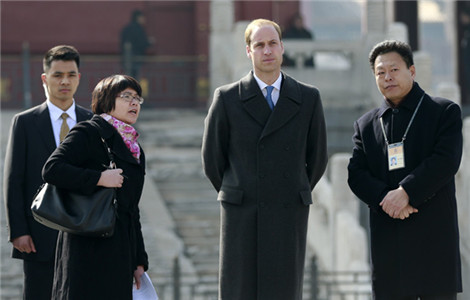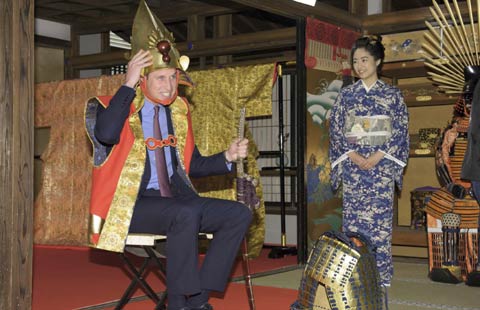Deregulation is key to speeding innovation: expert
Updated: 2015-03-02 11:07
By Niu Yue in Cambridge, MA(China Daily USA)
|
|||||||||
China has realized the importance of deregulation to unleash its full innovation potential, said an expert at a top government think tank.
"They really think it is a very big problem they must confront," said Ma Mingjie, deputy director of technical and economic research of the Development Research Center, which conducts strategic research for China's central government.
"We can see the central government and the [Communist] Party have big confidence and a big decision to slim the government and transform the central government to make them more suitable for the modern society," he said at a panel of the Asia Business Conference at Harvard Business School in Massachusetts.
Since 2013, China's central government has canceled more than 500 administrative examination and approval items and promised to do more in the future. In October, the Communist Party of China also said the government would set a "power list," which would list all actions the government could take within the legal framework; all extralegal power would be banned.
General Secretary of CPC's Central Committee and China's president said bending the law had created "deep resentment among the public," according to Xinhua News Agency.
When bribery becomes a better way to do business, the impetus for innovation will dwindle, said Tang Hesong, former vice president of Baidu Inc, who oversaw several of the Internet giant's key expansions. "Innovation is about market competitiveness," he said.
Ma's words echo a recent article by Wang Yiming, deputy secretary general of the National Development and Reform Commission, China's top economic planning body.
"Innovation requires full market competition and the right path. It needs to utilize the market mechanism and lead the changing new market," said Wang, in an op-ed piece published Thursday on the website of China Central Television ahead of China's annual session of the National People's Congress, China's top legislative body.
Some innovations do come from highly regulated sectors, such as high-speed railways, in which only two state-owned locomotive manufacturers, CNR and CSR, are operating and are to be merged, but it does not necessarily mean tight regulation or monopoly is good for an innovative China.
"China's advantage [in high speed railway] is a huge market and demand," Ma said.
Chinese used to enjoy the privilege of absorbing foreign companies' technologies, but as "they face an unknown future, they have to compete with other foreign competitors their mechanism to innovate is a challenge," he said.
Instead, the government should continue to stimulate innovation of businesses by eliminating factors that "cannot reflect the normal signal from the demand or the market side," said Ma. He cited energy, which is lower than the market balance point, as an example, saying it made manufacturers unwilling to adopt clean technology.
The government should also "eliminate lots of administrative monopoly or deregulate," said Ma, as it would put the private sector and the public sector on a level playing field.
The world's second-largest economy is entering a critical period in which it has to transform itself from an imitator to an innovator, said Tang.
In fields such as micropayment and e-commerce, China has taken the world lead, according to an article on Forbes.com. "It is market competition," said Tang.
"The mainstream of Internet is still very dynamic" with less government intervention and more room for capital, he said. "That's what is happening in China's Internet business."
Apart from government strategy in spurring innovation, the panel also discussed other factors that might influence China's advances in innovation, including air pollution and food safety, which have started to drive overseas talents who already had returned to China, finally out of the country again.
The government has vowed to tackle such issues.
Lu Huiquan in Cambridge, MA contributed to this story.
- Legislative, advisory assemblies clean house
- Reserves expanded to protect panda's habitats
- Sport chiefs to press ahead with soccer reforms
- Visitors enjoy cherry blossom in a park in SW China's Yunnan
- Death toll rises to 9 in Shenzhen airport car accident
- Reporters receive accreditation for 'two sessions'

 Han-style Chinese beauties at Cambridge
Han-style Chinese beauties at Cambridge
 Aerial views of plum blossoms as beautiful as oil paintings
Aerial views of plum blossoms as beautiful as oil paintings
 Prince William visits Forbidden City
Prince William visits Forbidden City
 Visitors enjoy cherry blossom in a park in SW China's Yunnan
Visitors enjoy cherry blossom in a park in SW China's Yunnan
 Monkey king, angel and superwoman at Beijing's 'naked run' race
Monkey king, angel and superwoman at Beijing's 'naked run' race
 Red-crowned cranes in Yancheng
Red-crowned cranes in Yancheng
 Prince William evokes Diana memories on Japan tsunami trip
Prince William evokes Diana memories on Japan tsunami trip
 Best times to view spring flowers in Beijing
Best times to view spring flowers in Beijing
Most Viewed
Editor's Picks

|

|

|

|

|

|
Today's Top News
US policy focused on Asia: official
China more proactive at UN
Cooperation potential called 'limitless'
Homeland Security funding drama darkens US fiscal outlook
17th Apple retail store in Chinese mainland opens in Shenyang
PBOC cuts rates to ease business financing
Former celebrity TV anchor on crusade against pollution
China ends UN council presidency
US Weekly

|

|








